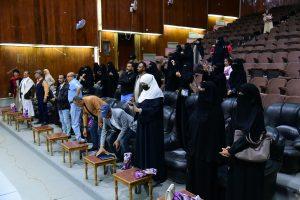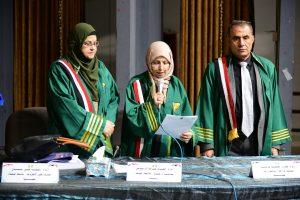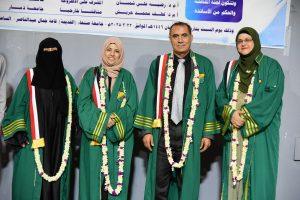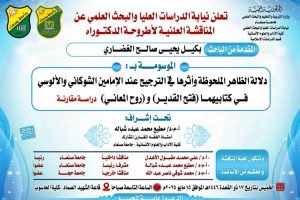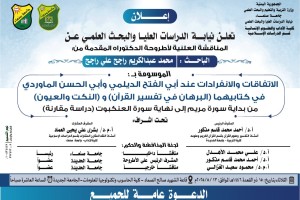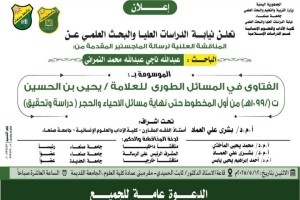Public PhD Viva-Voce Examination of Ms. Najat Murshid Mohammed Al-Duroobi, from the Department of Psychology, Faculty of Arts & Humanities – Sana’a University
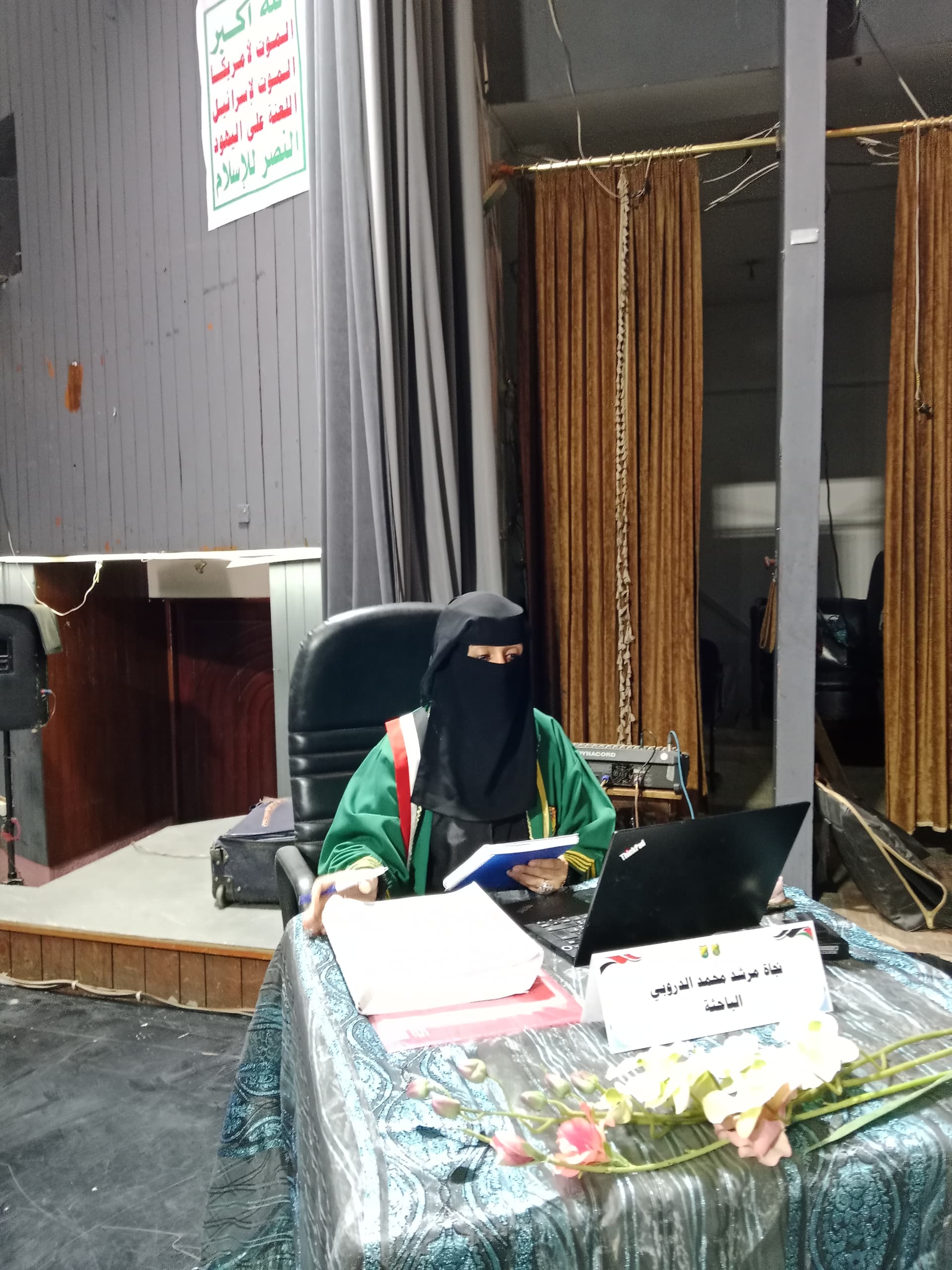
Ms. Najat Murshid Mohammed Al-Duroobi has successfully awarded the PhD Degree majoring in Clinical Psychology (Psychotherapy) from the Department of Psychology, Faculty of Arts & Humanities – Sana’a University. Her dissertation, titled “The Effectiveness of a Selective Treatment Program Based on the Lazarus Model to Develop Motivation for Addiction Treatment Among Drug Addicts in the Capital – Sana’a,” was defended on Saturday Ramadan 22, 1446 Hijri corresponding to March 22, 2025.
The Viva-Voce Committee, which was formed based on a resolution issued by the Post-Graduate Studies and Scientific Research Council, consisted of the following:
1. Prof. Dr. Ilham Abdullah Al-Eryani, Internal Examiner, Sana’a University, Chair.
2. Prof. Radhia Ali Shamsan, Main Supervisor, Sana’a University, Member.
3. Lutfi Mohammed Harish, External Examiner, Dhamar University, Member.
The primary objective of this research was to evaluate the effectiveness of a selective treatment program grounded in the Lazarus model aimed at enhancing motivation for addiction treatment among drug addicts in the Capital Secretariat.
The study yielded several significant findings:
1. A high prevalence of drug use was observed among the majority of participants, with many engaging in multiple forms of addiction, including cannabis (hashish), opiates, and sedatives.
2. Cannabis (hashish) emerged as the most frequently utilized substance among addicts in the targeted hospitals within the Capital Secretariat.
3. The motivation levels among addicts were notably low, with 64 individuals classified as having low motivation, 36 exhibiting average motivation, and none demonstrating high motivation.
In light of these findings, the researcher proffers the following recommendations:
1. It is imperative that the Ministry of Health undertakes the training and qualification of specialists dedicated to the treatment of addiction patients, as the current availability of experienced psychiatric therapists is limited. Most practitioners have developed their competencies through self-directed efforts rather than formal training.
2. The Ministry of Health should endeavor to establish addiction treatment programs that are complementary to existing medical interventions in Yemen. Currently, there exists a lack of a comprehensive framework within psychiatric hospitals for the treatment of individuals with addiction, resulting in specialists relying heavily on their personal initiatives.
3. The establishment of dedicated addiction departments within all hospitals that accommodate individuals with substance use disorders is essential. Such departments would address the unique needs of these patients while mitigating the risks they pose to other hospitalized individuals through potential interactions.
4. Media organizations are encouraged to devise a strategic media campaign aimed at enhancing public awareness regarding the dangers of drug abuse, thereby preventing youth from succumbing to addiction.
5. The Ministry of Health should prioritize the collection and analysis of psychological and addiction-related statistical data. Such efforts are vital for accurately identifying the scope of the problem, devising effective interventions, and facilitating the development of targeted solutions.
6. The government is urged to invest in the establishment of publicly funded psychiatric clinics and hospitals to alleviate the escalating costs associated with mental health care, particularly in the realm of addiction treatment.
7. Relevant governmental bodies must enforce stringent regulations governing the procurement of medications, especially sedatives and hypnotics. Such substances should only be dispensed with a valid medical prescription, given their significant potential to contribute to substance dependency.
The Viva-Voce was attended by several academics, researchers, students, and several colleagues and family members of the researcher.
